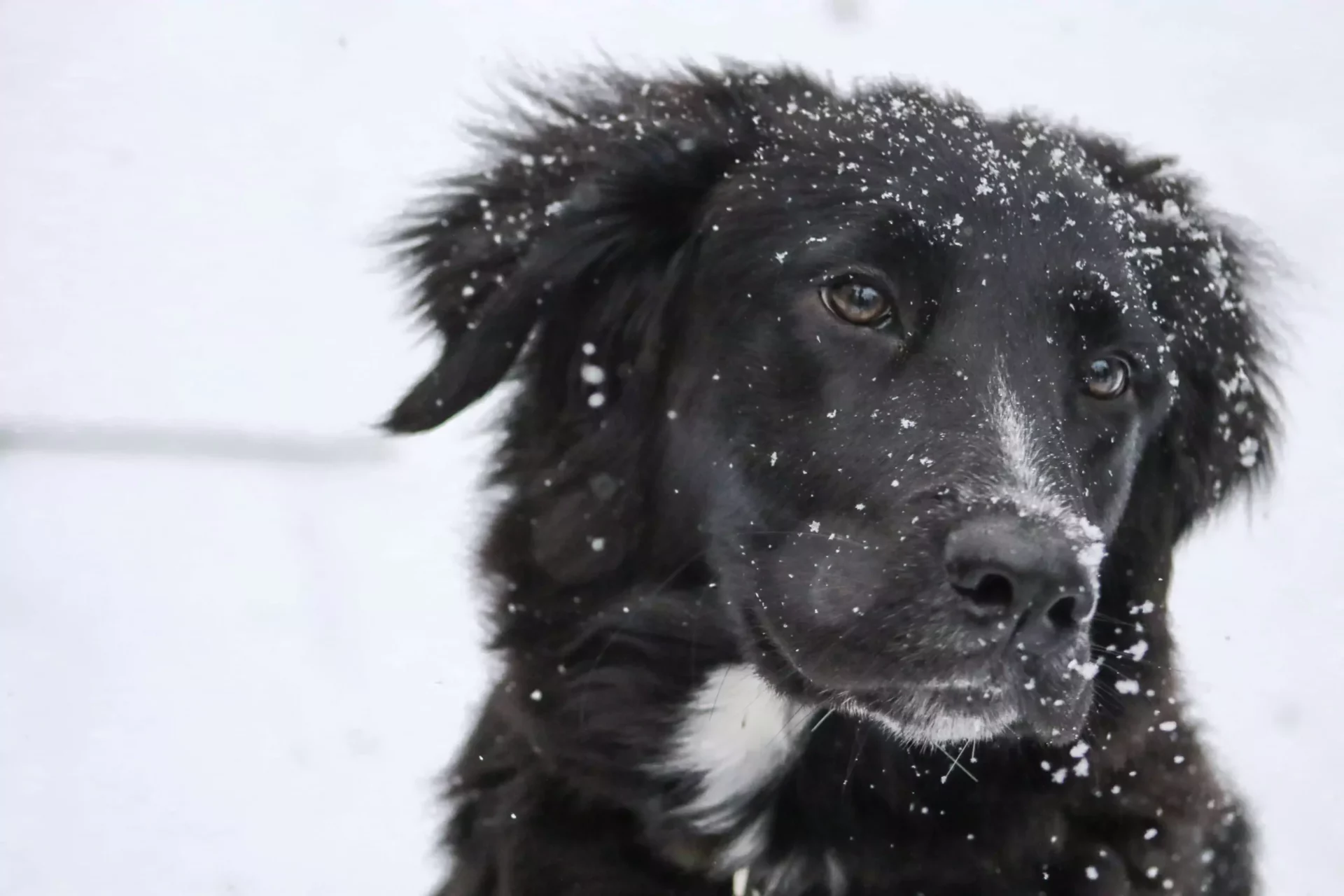Colorado winters can be absolutely breathtaking. They can also be really, really cold. While some of our furry patients enjoy that frigid weather, others will spend the winter months curled up in their beds. Fluffy and Fido may have fur coats on, but they still need protection from the cold. Read on as a local Weld County, CO vet offers some advice on caring for your pet in winter.
Dog Walking Safety Precautions
When walking Fido in cold weather, be sure to wear boots or shoes with good tread. You’ll also need to pay your pup’s paws some extra attention. Snow, salt, sand, ice, and chemical de-icing agents can cause painful blisters and abrasions. Use paw balm or wax to protect your dog’s paw pads. Since you’ll be walking your canine friend after dark, you may also want to get a leash that is equipped with a flashlight.
Keep Up With Grooming
Did you know that dust, dander, mats, and dead fur all reduce the insulating qualities of your pet’s fur? Keep up with Fluffy and Fido’s grooming needs!
Offer Comfy Beds
A thin pad won’t offer much protection from chilly floors. Make sure that your four-legged pal has a comfy bed. Senior pets often get particularly stiff and sore when it’s cold out. If your dog or cat is in their golden years, ask your vet for tips on helping them stay comfortable. Supplements may be helpful here. Fluffy and Fido may also appreciate a thermal blanket.
Ground Your Kitty
Cats are much safer as indoor pets, where they aren’t at risk from cars, weather, predators, and other issues. Winter is especially dangerous. The freezing weather is a hazard in and of itself. Plus, fresh snow can mask the scents and landmarks that can help Fluffy find her way home. Kitties are also at risk of being trapped in places like sheds and garages during storms. If you do let your feline pal go out, bring her in before dark. We’d also recommend setting out an emergency shelter for her.
Consider Alone Time
Does your furry pal stay home alone while you go to work? In winter, it may be dark before you get home. Nobody enjoys sitting home alone in a dark, quiet house! Turn a light and a radio on for them before you leave.
Our Advice on Cold Weather Pet Care Tips in 2024
What are the signs of hypothermia and frostbite in pets?
Signs of hypothermia in pets include shivering, lethargy, weakness, and a rectal temperature below 98°F (36.7°C). As hypothermia progresses, pets may become unresponsive, with shallow breathing and a slow heart rate. Frostbite typically affects the ears, paws, and tail, causing pale, cold skin that may turn red, blue, or black. In severe cases, the affected tissue may become hard and brittle. If you suspect your pet has hypothermia or frostbite, immediately seek veterinary care and gradually warm them with blankets or towels during transport.
How can pet owners determine if their pet’s coat is thick enough to withstand cold temperatures?
To determine if a pet’s coat is thick enough for cold temperatures, consider the breed, coat type, and overall health. Breeds with thick, double coats, such as Huskies and Malamutes, are well-suited for cold weather. However, short-haired breeds, like Chihuahuas and Greyhounds, may need extra protection. Pets with thin, sparse, or matted coats may also require a sweater or coat. Additionally, senior pets, puppies, and those with health issues may be more sensitive to cold. If a pet shivers, seems uncomfortable, or seeks warmth, it’s likely their coat is insufficient for the conditions.
What are the ideal temperature ranges for different types of pets to be comfortable and safe during winter?
The ideal temperature range for pets during winter depends on their breed, coat type, size, age, and health status. Generally, most dogs and cats are comfortable in temperatures above 45°F (7.2°C). However, smaller breeds, short-haired pets, and those with health issues may require temperatures above 60°F (15.6°C). Larger breeds with thick, double coats can tolerate temperatures as low as 20°F (-6.7°C), but should be monitored for signs of discomfort. When the temperature drops below 32°F (0°C), limit outdoor time and provide warm shelter. Indoor temperatures should be kept between 60-80°F (15.6-26.7°C) for optimal comfort.
How can pet owners ensure their pets stay properly hydrated during winter?
To ensure pets stay properly hydrated during winter, provide access to fresh, clean water at all times. Regularly check water bowls to make sure the water hasn’t frozen, and consider using a heated water bowl for outdoor pets. Some pets may be less inclined to drink cold water, so adding warm water or low-sodium broth can encourage drinking. Monitor your pet’s water intake and watch for signs of dehydration, such as dry nose and mouth, lethargy, and decreased skin elasticity. If your pet’s water intake is low, consult your veterinarian for guidance.
How can pet owners safely remove snow and ice from their pet’s paws after walks?
After walks in snow and ice, pet owners should carefully remove any accumulated snow, ice, or de-icing agents from their pet’s paws to prevent discomfort and potential toxicity. Use a warm, damp cloth or towel to gently wipe each paw, paying attention to the spaces between the toes and paw pads. For stubborn ice or snow, let it melt naturally by holding the paw in your warm hand before wiping. Thoroughly dry the paws after cleaning and consider applying a pet-safe balm or wax to protect and moisturize the paw pads. Regularly trimming fur between the toes can also help minimize snow and ice accumulation.
As your local Weld County, CO animal clinic, we are dedicated to providing top-notch care. Please feel free to contact us anytime!



